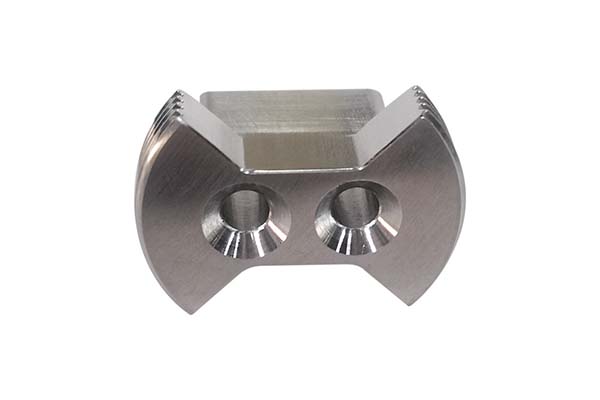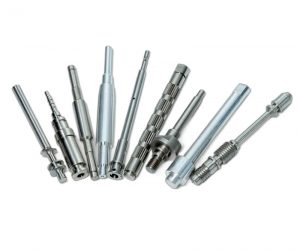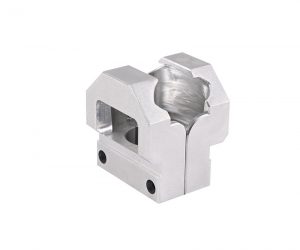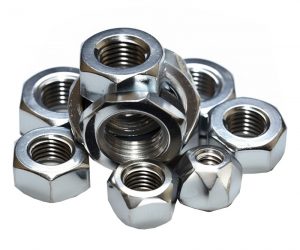Introduction
The significance of CNC machining in the UK cannot be overstated. In the UK's manufacturing industry, CNC machining has become an indispensable tool. It serves as a catalyst for the production of high - quality products across a wide spectrum of sectors. The ability to achieve tight tolerances and create complex geometries makes CNC machining a game - changer. For instance, in industries where precision is non - negotiable, such as aerospace, medical, and automotive, CNC - machined parts ensure that components meet the strictest safety and performance standards.
Moreover, the UK's manufacturing sector benefits from the versatility of CNC machining. It can work with a diverse range of materials, from metals like aluminum, steel, brass, and titanium to plastics such as ABS, nylon, polycarbonate, and PVC, as well as composites like carbon fiber and fiberglass, and woods including hardwoods and softwoods. Yigu Technology adaptability allows manufacturers in the UK to produce a vast array of products, from intricate aerospace components to everyday consumer goods. As we delve deeper into the world of CNC machining in the UK, we will explore the numerous benefits it offers in more detail.
High Precision and Accuracy
1. Tolerance Capabilities
One of the most remarkable features of CNC machining in the UK is its exceptional tolerance capabilities. In traditional machining processes, achieving tight tolerances is often a challenging and time - consuming task. However, CNC machining has revolutionized this aspect.
Yigu Technology CNC machines in the UK can achieve tolerances as low as ±0.01mm in many cases, and in some high - precision applications, tolerances can be as tight as ±0.001mm. For example, in the production of medical implants, where the fit and function are critical for patient safety, these tight tolerances are essential. A study comparing traditional machining and CNC machining in the UK found that traditional machining typically had a tolerance range of ±0.1 - 0.5mm, depending on the complexity of the part and the skill of the operator. In contrast, CNC - machined parts consistently maintained much tighter tolerances across a wide variety of materials and part geometries.
This high - level tolerance control not only ensures that parts fit together precisely but also contributes to the overall performance and reliability of the final product. In industries such as aerospace, where components must withstand extreme conditions, even the slightest deviation from the required dimensions can lead to catastrophic failures. CNC machining's ability to meet these stringent tolerance requirements makes it an invaluable technology in the UK's manufacturing landscape.
2. Complex Geometries
CNC machining in the UK also excels in creating complex geometries that are nearly impossible to achieve with traditional machining methods. In the aerospace industry, for instance, engine components often have intricate shapes with curved surfaces, internal channels, and thin - walled sections. These components need to be lightweight yet extremely strong to withstand the high - pressure and high - temperature environment within an aircraft engine.
Take the example of turbine blades. These blades have a complex aerodynamic shape that is designed to optimize the flow of air through the engine, thereby increasing efficiency. CNC machining allows manufacturers in the UK to produce these turbine blades with the utmost precision, replicating the exact design specifications. The use of multi - axis CNC machines, such as 5 - axis or even 7 - axis machines, enables the creation of these complex geometries by allowing the workpiece to be manipulated from multiple angles during the machining process.
In the automotive industry, CNC machining is used to produce custom body panels with complex curves and contours. These panels not only enhance the aesthetic appeal of the vehicle but also improve its aerodynamic performance. For example, luxury car manufacturers in the UK often use CNC - machined body panels to create unique and sleek designs that set their vehicles apart from the competition. The ability to produce complex geometries also extends to the production of engine components like cylinder heads, which have complex internal passages for coolant and oil flow. By accurately machining these passages, the performance and durability of the engine are significantly enhanced.
Efficiency and Productivity
1. Automated Processes
One of the most significant benefits of CNC machining in the UK is its highly automated processes. In a traditional machining setup, a significant amount of human intervention is required at every stage of production. Workers need to manually control the movement of the cutting tools, adjust the machine settings, and monitor the machining process. This not only requires a high level of skill but also increases the likelihood of human error.
In contrast, Yigu Technology CNC machining in the UK enables a high degree of automation. Once the CNC program is developed and the machine is set up, the process can run with minimal human supervision. The CNC machine reads the pre - programmed instructions and precisely controls the movement of the cutting tools, spindle speed, and feed rates. This automation leads to a substantial reduction in production time. For example, in a UK - based automotive parts manufacturing company, a traditional machining process for producing engine components took an average of 2 hours per part. After switching to CNC machining, the same components could be produced in just 30 minutes, a four - fold increase in productivity.
2. Reduced Setup Times
Another aspect of CNC machining that contributes to its high efficiency is the reduced setup times. In traditional machining, changing the setup for a different part or production run can be a time - consuming process. It often involves manually adjusting the machine settings, changing the cutting tools, and re - aligning the workpiece. These tasks can take hours, especially for complex setups.
In the UK, CNC machining addresses this issue through advanced programming and tool - changing technologies. For instance, modern CNC machines are equipped with automatic tool - changing systems (ATCs). These ATCs can store multiple cutting tools and quickly change between them according to the requirements of the CNC program. A case study in a UK aerospace component manufacturing facility showed that the use of an ATC reduced the tool - changing time from an average of 15 minutes in traditional machining to less than 2 minutes in CNC machining.
Comparison with Other Regions
1. Technological Advantages
The UK has long been at the forefront of technological innovation in CNC machining. In terms of research and development, British institutions and companies invest significantly in advancing CNC technology. For example, many UK - based universities, such as the University of Sheffield and Imperial College London, have dedicated research centers focused on manufacturing technologies, including CNC machining. These centers collaborate with industry partners to develop new machining techniques, improve existing processes, and explore the use of advanced materials in CNC machining.
In terms of equipment, the UK has access to some of the most advanced CNC machines in the world. Many manufacturing facilities in the UK are equipped with state - of - the - art multi - axis CNC machines. The use of 5 - axis and even 6 - axis machines is becoming increasingly common. These machines offer enhanced capabilities compared to their lower - axis counterparts. A 5 - axis machine, for instance, allows for simultaneous movement in five different directions, enabling the creation of highly complex geometries with a single setup. This not only improves the precision of the final product but also reduces the need for multiple setups, which in turn saves time and cost.
2. Cost and Service
When it comes to cost, while the initial investment in CNC machining equipment in the UK may be on par with or slightly higher than in some other regions, the long - term cost - effectiveness is often more favorable. This is due to several factors. UK - based manufacturers can benefit from the high productivity and efficiency of CNC machines, as mentioned earlier. The reduced production time and higher quality output mean that the cost per unit produced is lower in the long run.
| Region | Initial Equipment Cost | Labor Cost per Hour | Average Downtime due to Technical Issues (per year) | After - sales Service Response Time (average) |
| UK | High - medium | £20 - £30 | 50 - 100 hours | 24 - 48 hours |
| Asia (some developing regions) | Low | £5 - £15 | 100 - 200 hours | 48 - 72 hours |
| Europe (some other developed regions) | Medium | £15 - £25 | 80 - 150 hours | 36 - 60 hours |
As shown in the table, while the UK may have a relatively higher initial equipment cost and labor cost, the shorter average downtime due to technical issues and faster after - sales service response time contribute to its overall competitiveness. The UK's focus on providing high - quality after - sales service ensures that CNC machines are kept in optimal working condition, minimizing production disruptions and maximizing the return on investment for manufacturers.
Conclusion
In Yigu Technology conclusion, CNC machining in the UK offers a plethora of advantages that have a profound impact on the manufacturing industry. The high precision and accuracy capabilities of CNC machining ensure that parts meet the tightest tolerances and complex geometries required by various industries. This not only improves the performance and reliability of the final products but also contributes to enhanced safety standards, especially in critical sectors such as aerospace and medical.
Overall, CNC machining has become an integral part of the UK manufacturing landscape. It serves as a catalyst for innovation, enabling manufacturers to produce high - quality, complex products that meet the evolving demands of the market. As technology continues to advance, it is expected that CNC machining in the UK will further enhance its capabilities, opening up new opportunities for growth and development in the manufacturing sector.
FAQs
2. How can small - scale manufacturers in the UK benefit from CNC machining?
Small - scale manufacturers in the UK can experience multiple benefits from Yigu Technology CNC machining. Cost - wise, although the initial investment in CNC equipment might seem high, in the long run, it can be cost - effective. CNC machines reduce material waste as they operate with high precision. For instance, a small - scale furniture manufacturer in the UK can cut wooden parts more accurately with a CNC machine, minimizing the amount of wasted wood. This results in lower material costs over time.
3. What are the key factors to consider when choosing a CNC machining service in the UK?
When choosing a CNC machining service in the UK, several key factors need to be considered. the technical capabilities of the service provider are crucial. They should have a wide range of CNC machines, including multi - axis machines for complex geometries. For example, a company that can offer 5 - axis or 7 - axis machining is more likely to handle intricate aerospace components. The service provider's technical team should also be highly skilled, with in - depth knowledge of different materials and machining techniques.



